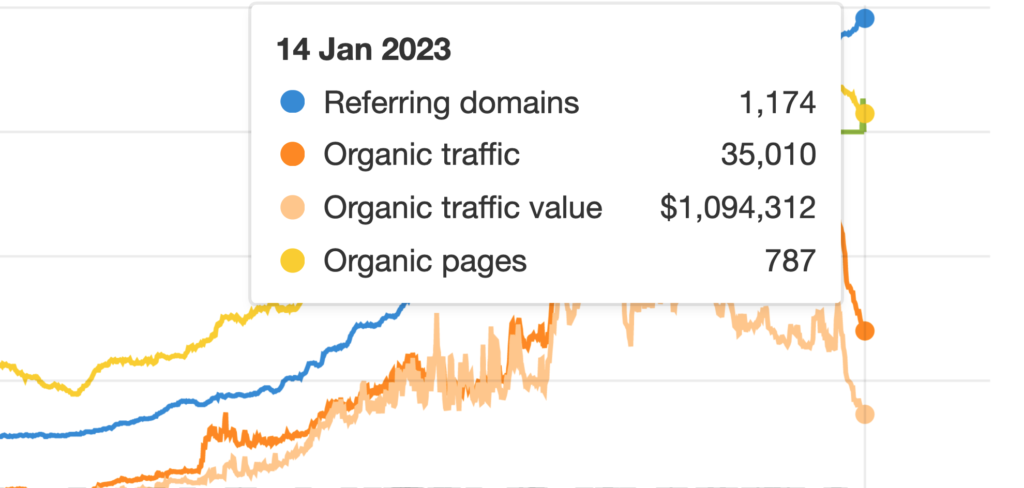Google Laying off over 12000 Employees after Clogging Home Page with Paid Ads

In a recent email from Google CEO Sundar Pichai to their staff, the company will be laying off 12,000 employees, adding Google to the many tech companies cutting jobs and preparing themselves for a possible recession. Is it the fear of recession, or are there some internal issues causing such a massive layoff? After all the anti-trust lawsuits and potential legal troubles, many people on all sides are furious, so let’s take a look.
The Circle of Legal Trust is a group of vetted attorneys working together to build the world’s largest case referral network. Here we provide tips on Search Engine Optimization, teach attorneys how to market their law firm, and go over the latest news that makes a sound in the legal world. This article will go over the “tough choices” Google has to make in the coming days and possible reasons for this.
Little Comfort in Layoff Notifications as Google Employees Gear for Company Restructuring
According to the Google Blog post published soon after the CEO emailed their staff, Google’s Parent company, Alphabet, will be laying off 6% of its workforce. The company will continue its layoff plan immediately in the United States, while it may take longer in other countries due to local laws.
CNBC reported that employees feared layoffs since November 2022 as big tech layoffs spurred across the United States. Microsoft announced they would let go of 10,000 employees, while Amazon expects to eliminate 18,000 workers.
Google Employees to Be Paid Severance Package for the Full Notification Period and More, Google CEO States
The industry layoff trend and the changes to the company’s performance rating system indicated that Google’s parent company, Alphabet, would have to make tough choices.
However, the employees won’t be left in the dirt. Well, that’s what Sundar Pichai believes after he announced that the severance package starting with 16 weeks (full notification period) of pay would be available for all employees affected by the recent policy change, plus the company will pay employees weeks for every year the employee served the company. Additionally, the company will pay for the remaining vacation time and 2022 bonuses and provide six months of healthcare, job placement services, and immigration support for all laid-off employees. The Alphabet workers’ union says the news is of “little comfort.”
Different Economic Reality from the Dramatic Growth Two Years Ago
Sundar Pichai addressed his employees in a deeply saddening layoff notification stating that the company was hiring for a different economic reality two years ago, where there was massive growth, but the recent slowdown in the economy is a new economic reality that the company is now gearing to prepare for.
He stated that the company had experienced difficult economic cycles over the past 25 years. The early investments in AI tech have helped the company boom, making groundbreaking advances in the industry and creating new opportunities across the company’s products.
To combat the different economic realities the company faces today, it will restructure its cost base and focus the talent and resources towards what it considers the highest priorities.
How Google and Social Media Companies Fund Global Misinformation?
Google and other tech giants, such as Facebook, are bankrolling misinformation around the world. In March 2021, Myanmar saw the fall of a democratic government, and a Facebook live stream showed people out on the streets protesting against the military coup. In a country with little over 54 million people, the live stream received more than 1.5 million views.
Although the live stream allowed people worldwide to see what was happening in Myanmar, the global misinformation started to spread its roots. The same video circled Facebook a day later, claiming to be live. The same trend continued with the same video showing up multiple times across the day, all claiming to be live.
With so much political unrest and turmoil in the country, it became difficult to determine what was real and what wasn’t. In 2015, the country had six out of 10 websites with information from legitimate sources that had the most engagement on Facebook. After the company introduced Instant Articles, a program that allowed publishers to monetize their content, the websites on Facebook with information from legitimate sources dropped to two out of 10. By 2018, it went to zero.
The launch of Instant Articles led to the prioritization of low-grade content over legitimate sources, with most of the engagements now on fake news and propaganda. When the militant group attacked the Rohingya (a Muslim ethnic minority), anti-muslim propaganda spurred, with fake news claiming that the Rohingyas were armed and deadly, shifting public opinion and escalating the conflict.
Just like Facebook got its hands dirty with Global misinformation, so did Google. Google’s AdSense program targeted the American audience before the 2016 general elections and continues incentivizing clickbait actors on YouTube to spread misinformation and create outrageous content. Google and Facebook continue to take the stance that these people spreading misinformation are financially motivated spammers and not political influence operations, with experts believing that it is hard to draw the line between the two.
A financially motivated clickbait site may one day be posting pictures of cute puppies and talking about celebrity culture. When political uncertainty strikes, the content starts to lean toward hyperpartisan news and misinformation. A great example is that around 2020, a cluster of websites and pages would share the same information about promoting LGBT. But a few weeks before the 2020 presidential campaign, the content turned political and amplified the bashing of certain candidates. There are many other examples of such pages that take money from political operatives to spread misinformation. In other words, pages that may seem innocuous may not be.
Another huge concern is the violators on these platforms don’t get removed from the platform but from programs such as Instant Articles and AdSense. They can appeal their removal, which is overseen by another team, meaning their reinstatement into the program only takes a few hours.
With many expansion and monetization schemes, Google and other social media companies have almost lost their plot. They’ve hired so many during a spur of a dramatic growth period to “expand” their products and services. But many believe that during the past two years, what Google has done is incentivize the spread of misinformation. When you analyze their stock prices, there has been a severe dip. If the company was doing so well, why was there a slump in stock prices in the past year?
Google parent Alphabet stood at 148 USD on 2nd February 2022 and went to 83.43 USD on 3rd November 2022. Are the investors not happy? Are they not aligned with the company’s “shadow” objectives, the political influence, the products provided to third-party service providers, or the path the company chooses to pursue?
After the announcement of layoffs, the tech giant’s stock price climbed 5%, suggesting a favorable move welcomed by the investors (Remember, Elon Musk fired many employees after he spoke about the rampant political influence on Twitter). Could it be that the investors want to see real advancements rather than political maneuvering through the spreading of misinformation?
Bernstein analyst Mark Shmulik believes that the job cut could save the company $2 to $3 billion going into 2023 and allow it to re-strategize and re-focus its incredibly talented people on essential projects beneficial to the company’s core objectives. Many think that this is really about AI and the fact that wokeness at the Plex has created an environment of entitlement and non-productivity. We shall see what happens.
Talk to Circle of Legal Trust
You can’t trust what you see on the internet tells you these days. Nor can you rely on the news fed to you from “legitimate sources” without doing proper research of your own. What you can depend on is Circle of Legal Trust for the best SEO advice for your law firm. Contact them at (888) 494-5015 for a free consultation with a legal SEO expert.


Responses